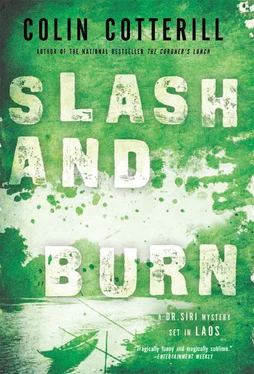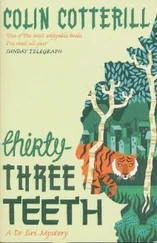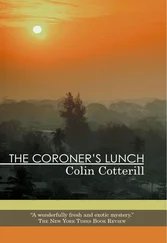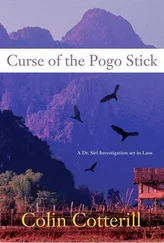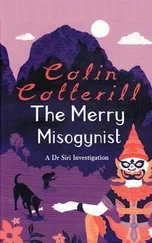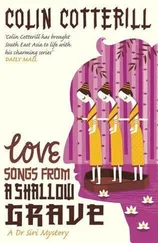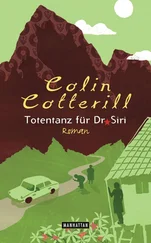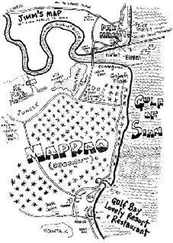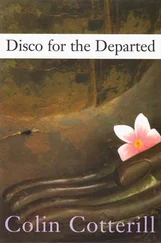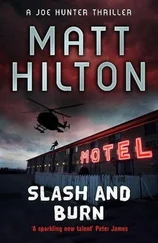Colin Cotterill - Slash and Burn
Здесь есть возможность читать онлайн «Colin Cotterill - Slash and Burn» весь текст электронной книги совершенно бесплатно (целиком полную версию без сокращений). В некоторых случаях можно слушать аудио, скачать через торрент в формате fb2 и присутствует краткое содержание. Жанр: Полицейский детектив, на английском языке. Описание произведения, (предисловие) а так же отзывы посетителей доступны на портале библиотеки ЛибКат.
- Название:Slash and Burn
- Автор:
- Жанр:
- Год:неизвестен
- ISBN:нет данных
- Рейтинг книги:5 / 5. Голосов: 1
-
Избранное:Добавить в избранное
- Отзывы:
-
Ваша оценка:
- 100
- 1
- 2
- 3
- 4
- 5
Slash and Burn: краткое содержание, описание и аннотация
Предлагаем к чтению аннотацию, описание, краткое содержание или предисловие (зависит от того, что написал сам автор книги «Slash and Burn»). Если вы не нашли необходимую информацию о книге — напишите в комментариях, мы постараемся отыскать её.
Slash and Burn — читать онлайн бесплатно полную книгу (весь текст) целиком
Ниже представлен текст книги, разбитый по страницам. Система сохранения места последней прочитанной страницы, позволяет с удобством читать онлайн бесплатно книгу «Slash and Burn», без необходимости каждый раз заново искать на чём Вы остановились. Поставьте закладку, и сможете в любой момент перейти на страницу, на которой закончили чтение.
Интервал:
Закладка:
Cross-cultural integration had become an art form by dinner time at the Friendship Hotel. Almost everybody had a new buddy. Even couples had split up in the cause of socialization. Each table had its own 750 mls of Johnny Walker Red and a battalion of soda bottles. As the Friendship had only three hours of electricity there was no ice but after the third glass it was of no importance. The mood needed elevating. The teams had reached the end of the second day but had come up with not a single molar. Not a rotor or a seat spring. There was one empty table. The men who had traveled to Phonsavan to report the day’s finding were presumably still stuck in the queue at the post office. They’d been there for six hours so their patience would have been wearing a little thin by the time they returned. A smiling Johnny Red awaited them.
Auntie Bpoo had brought a lit candle to the dining room. She had sought out Dr. Yamaguchi and attempted to use her physical presence to hustle him away from the others to a table in the corner-just the two of them. From her wardrobe she had selected a splendid crimson silk gown with noodle-thin shoulder straps.
She was a good five centimeters taller than the pathologist, thanks to a pair of matte-black stiletto heels. Phosy had witnessed this attempted kidnapping and, feeling sorry for the old man, he and Geung went to sit with them. Bpoo was clearly not amused. It took a while to get her to agree to translate. But once she did, Phosy enjoyed his evening with the American. In a still photograph, even though he wore no glasses and his hair was ungreased, Yamaguchi would have looked as Japanese as Emperor Hirohito. He had that same strained expression that comes from carrying the weight of a three-thousand-year-old dynasty. But Yamaguchi was as American as bubblegum. It was evident from the very first moment he swaggered into a room. His posture was good from years of being the nail that wouldn’t be hammered down. But the feature that made him stand out was volume. It was Civilai’s theory that the Americans, like the Chinese, placed their elementary school teachers too far from the students’ desks. As a result they were trained to shout at one another from an early age. Most Lao schools had no furniture so the pupils could sit around the teacher and communicate at a civilized volume. Yamaguchi’s meal banter had a decibel level above that of a foghorn.
At five minutes to nine, the wheezy generator rattled and clunked its intention to retire so Siri, Ugly and Civilai took half a bottle of Johnny to the hotel veranda. The post office gang and their helicopter had still not returned. Siri, locked in an excruciatingly dull evening with General Suvan and his confused reminiscences, had noticed two odd things. One was the distinctive smell of smoke. It had been present earlier but he’d merely assumed it was the cook burning the evening meal. By eight it had become so pervasive that he’d excused himself to walk around the hotel to make sure the place wasn’t on fire. Toua the manager assured him it was probably just villagers nearby burning off the top growth to prepare the fields for planting. Siri was well acquainted with slash and burn agriculture. For centuries, nomadic tribes had burned off stretches of thick undergrowth and allowed the ash to fertilize the soil. The earth would offer up good harvests for three or four seasons until the soil was degraded, then the tribes would move on. In ten years the land would have replenished itself and be ready for the next migrating farmers. The three main crops for the surrounding Hmong were rice, maize and opium, and each required this shifting cultivation. But the manager’s answer didn’t sit right on Siri’s mind.
Then there was the air activity. Shortly after eight the flights had begun, fifteen or so, all told. Siri was certain he recognized a number of different craft. They were all heading west. It was remarkable, given the inexperience of its pilots, that the air force would choose to fly at night. The manager hadn’t been able to give an explanation for that particular mystery.
Siri and Civilai sat on two creaking rattan lounge chairs by the hotel entrance staring out over the Plain of Jars. Except there was nothing to see. To either side of them were the room-bound flashes of lamps and the shadows of candles, but directly ahead was nothing. It was the blackest black they could remember. Civilai commented that it was like staring out at the edge of time. He was remarkably poetic on Scotch whisky. The low clouds had obliterated the moon and stars and, as people retired for the night, one by one the rooms vanished. Soon, there was a perfect quantum state where Siri and Civilai and Ugly were just a part of the universe, blended together in one big black porridge of nature and meta-nature. It was a moving moment spoiled only by one of the ever-attentive maids who brought them a candle in a glass globe. She placed it on the table between them and fumbled her way back inside. The light barely reached the fence posts with their swirling mist foundations. But the two old boys could see each other quite well. It was cold and they wore jackets, but their feet were bare. They watched their toes wiggle, listened to the coughs and yawns of people priming themselves for sleep, and to the slobbering sounds of Ugly cleaning his equipment. They sniffed in the smoky night air and the nectar of the neat whisky.
“Daeng not joining us?” Civilai asked at last.
“Today was a bit much for her arthritis,” Siri told him. “She thought we’d be sitting behind a table taking notes all day so she didn’t wear her boots. Ugly’s standing in for her.”
“How are you holding up?”
“A bit tired but I’ll survive.”
They enjoyed the quiet some more.
“They’re out there, you know,” Siri said.
“Who’s that?”
“The jars.”
“Right. If we had tourism I’d put fluorescent lamps on each one so you could sit here and look at them; those lights that change colours, you know? Pinks and lime greens. Perhaps fireworks; those little sparkly ones.”
“Tasteful.”
“And none of that nonsense about burial urns. Guaranteed to kill off tourism at the first mention.”
“You don’t believe they are?”
“Siri, who in their right mind would allow their dead relatives to be folded up and squashed into a jar?”
“Some of those jars are two meters across.”
“Even so. Complete waste of labor when you have a wake to attend.”
“So, what’s the Civilai theory?”
“Well, it seems obvious. This region was famous for its dog racing. Traders came from all around to watch the heats. Gamble their life savings away on the nose of a mongrel.”
Ugly looked up, probably coincidentally.
“So, seeing all this potential from the new tourist trade,” Civilai continued, “the locals set up stalls. They made themselves jars, the bigger the better, and brewed rice whiskey.”
“So they’re stills?”
“Absolutely.”
“ Le plain des alambics . The plain of stills. Hmm, I like it.”
“Except rice whiskey ferments naturally so it doesn’t need heat. Once you’ve built your jar everything takes care of itself.”
“You have heard of the famous French lady archaeologist who made an extensive study and concluded they could only be burial urns?”
“Of course she did. She was a well-known prohibitionist. She wasn’t going to go home and tell everyone how she’d discovered an ancient civilization of debauchers and fornicators, was she? She had to make something up.”
“Good point. Except she found human remains in the jars.”
“Siri, those jars are enormous. The strongest whiskey is always at the bottom. The vendor just keeps topping it up with water. So your serious drinker isn’t going to be satisfied with scooping weak whiskey off the top, is he now? He puts his reed pipe all the way down and sucks up the sediment. But it’s heady stuff. Of course there’s going be collateral damage.”
Читать дальшеИнтервал:
Закладка:
Похожие книги на «Slash and Burn»
Представляем Вашему вниманию похожие книги на «Slash and Burn» списком для выбора. Мы отобрали схожую по названию и смыслу литературу в надежде предоставить читателям больше вариантов отыскать новые, интересные, ещё непрочитанные произведения.
Обсуждение, отзывы о книге «Slash and Burn» и просто собственные мнения читателей. Оставьте ваши комментарии, напишите, что Вы думаете о произведении, его смысле или главных героях. Укажите что конкретно понравилось, а что нет, и почему Вы так считаете.
